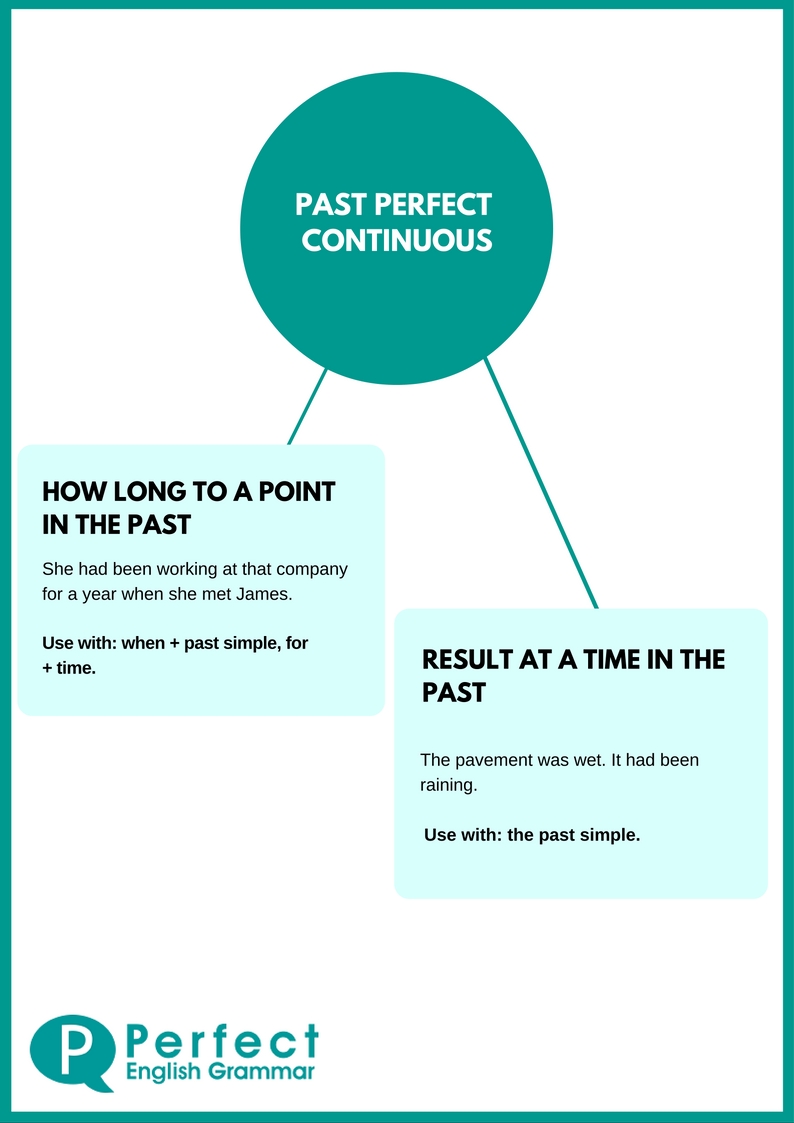
PAST PERFECT CONTINUOUS
The perfect continuous past in English corresponds to the pluperfect of Spanish in which the indicative of the verb "estar" is used and the verb + ing. In general, we use it for actions in the process of realization in the past before another action occurred.
Grammatical Rules
Form
As in the present continuous perfect, the perfect continuous past is formed with the auxiliary verb "to have", "been" and the verb + ing.
| Sujeto | Auxiliar | Verbo+ing |
|---|
| I, you, he, she, it, we, they | had been | studying, working, traveling… |
Structure
1. Affirmative Sentences
Sujeto + “had” + “been” + verbo+ing…
Example:
| I had [I’d] been studying English for 2 years when I went to London. |
| Lindsay had been working at the store since 2005 when it closed. |
| They were surprised when the airline lost their baggage as they had [they’d] been traveling for weeks without a problem. |
2. Negative Sentences
Sujeto + “had” + “not” + “been” + verbo+ing…
Example:
| I had not [hadn’t] been studying English long when I went to London. |
| Lindsay had not [hadn’t] been working at the store for long when it closed. |
| They had not [hadn’t] been traveling long before they had their first problem. |
3. Interrogative Sentences
“Had” + sujeto + “been” + verbo+ing?
Example:
| Had you been studying English for a long time before you went to London? |
| Had Lindsay been working at the store for a long time when it closed? |
| Had they been traveling for a long time when the airline lost their luggage?
Uses
1. We use the continuous perfect past to refer to something we had been doing (in process) when another action interrupted it. The continuous perfect past is used for action in process and the past simple for interrupting action. When we refer to something that we have been doing over a period of time, therefore, we usually use the prepositions of "for" or "since" time.
Example:
| I’d been working for hours when I fell asleep at my desk. |
| Frank bought a new car. He’d been looking for one since last year. |
| We’d been arguing for days when Elizabeth found a resolution. |
2. It is used to demonstrate cause and effect in the past.
Example:
| She was tired because she’d been working too much. |
| They were angry because they’d been waiting for me for hours.
Exercise on Past Perfect
Today's lesson is by Stephanie.
|
|


No hay comentarios:
Publicar un comentario